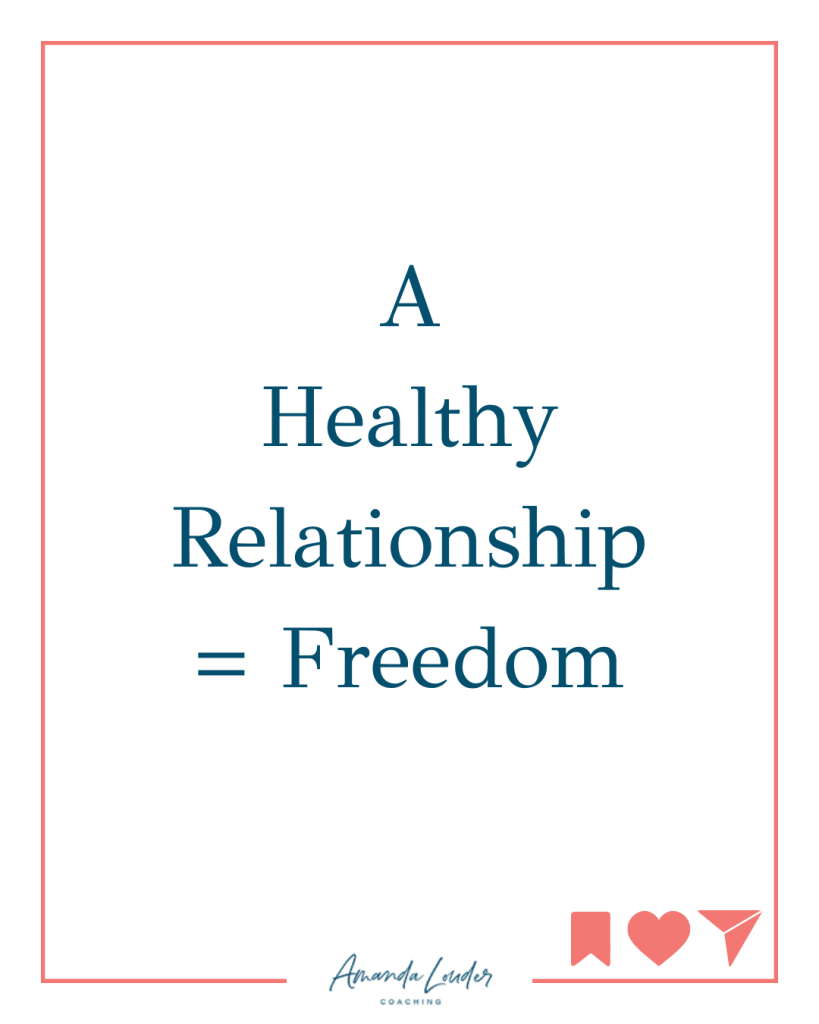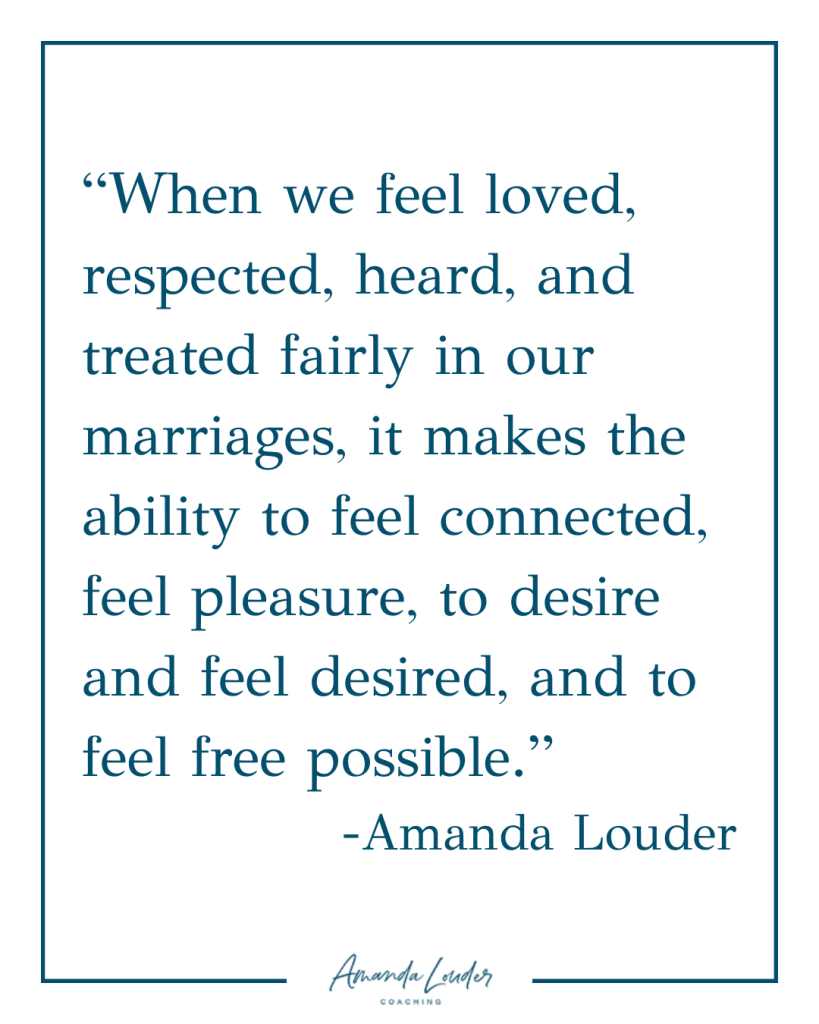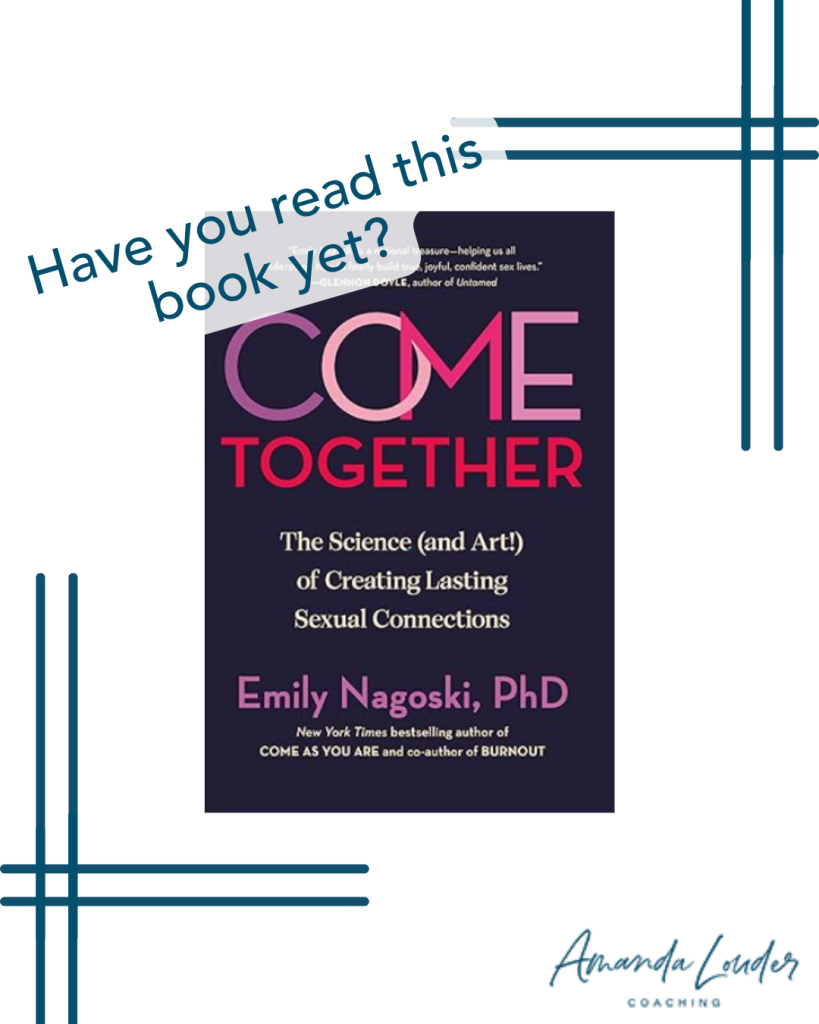
I’ve been thinking a lot about what we all want in our relationships and what that means to our relationships. So, today I’m going to share with you the four things that we all want in our sexual relationships. We may call them different things, but everyone wants essentially the same thing. I am also going to talk about what happens when these things we want aren’t happening in our sexual relationships. And what you can do about that. You see, the absence of these foundational values can lead to a host of challenges that impact both the marital and sexual aspects of a relationship. Let’s see what we can do about that!




Show Notes:
Follow Amanda on Facebook and Instagram.
Join Amanda’s Private Facebook Group.
References for this episode:
Come, As You Are by Dr. Emily Nagoski
Come Together by Dr. Emily Nagoski
Show Summary:
Last fall, I attended the Restore conference held here in Salt Lake City. This conference is put on by the Faith Matters organization and it brings together progressive minds in the field and peripheries of religion to help us live better lives. I loved the conference and was greatly impacted by many of the talks.
One of the talks that I loved was by a man named Daryl Davis. Mr. Davis was not a member of my same religion. He was a black man, born in Chicago. HIs father was a Department of State Foreign Service Officer and he and his family moved all over the world. When he was 10, his family moved back to the United States where he joined the all-white Cub Scout Pack in Belmont, Massachusetts. During a local parade with his pack, he was carrying the flag when he was struck with rocks and bottles thrown from the crowd, prompting the pack leaders to form a protective ring around him. Davis did not understand what had happened until he discussed it with his father, where his father explained racism to him for the first time. The irrationality of the incident led to his curiosity about the origins and basis for racist attitudes.
In addition to being an amazing backup pianist for the likes of Chuck Berry and Jerry Lee Lewis, Mr. Davis is an activist working to improve race relationships by seeking out, engaging in dialogue with, and befriending members of the Ku Klux Klan. In his work, Mr. Davis tried to build bridges with people and has been very successful with it because he said that all people need five things.
- To be loved
- To be respected
- To be heard
- To be treated fairly
- We want the same for our family
This list of five things struck me profoundly because I see the truth in it. We all want these five things in our life and especially in our relationships.
- We Want To be loved: Love is the cornerstone of any meaningful relationship. It encompasses affection, care, and emotional support. Feeling loved by your partner creates a secure foundation where intimacy can blossom.
- We Want To be respected: Respect is the currency of healthy relationships. It involves valuing your partner’s opinions, boundaries, and autonomy. When respect is present, it fosters trust and mutual admiration.
- We Want to be To be heard: Communication is the lifeblood of a successful partnership. Being heard means actively listening to your partner’s thoughts, feelings, and concerns. It fosters empathy and understanding, strengthening the emotional bond between partners.
- We Want To be treated fairly: Fairness ensures equality and justice within the relationship. It means sharing responsibilities, making decisions together, and resolving conflicts in a respectful manner. Fair treatment fosters a sense of equity and balance, nurturing a harmonious connection.
The book Come, As You Are by Dr. Emily Nagoski has long been my most recommended book for couples to read and get more familiar with spontaneous versus responsive desire and sexual accelerators and brakes. Dr. Nagoski has recently released a new book called Come Together, which I absolutely loved and can’t recommend enough. According to her research, almost everyone wants the same thing when it comes to our sexual relationship. While we may word it differently than she does, what it boils down to is that we all want to feel four things:
- Connection – True intimacy thrives on a deep sense of connection between partners. It goes beyond physical attraction to encompass emotional, intellectual, and spiritual bonds. Cultivating connection fosters intimacy and strengthens the foundation of the relationship. Now this can look differently for everyone. We all have our own definitions of connection. Determining what connection feels like for you, how you experience connection, and what increases or decreases that feeling of connection is important. Also understanding how your partner feels connected, because most likely it’s different than how you do.
- Shared Pleasure – Sexual satisfaction is not just about individual gratification but about mutual pleasure and fulfillment. Shared experiences of pleasure create a sense of unity and closeness, enhancing the overall satisfaction within the relationship. And while pleasure is something that we can experience on our own, most people really enjoy sharing it. Maybe it’s witnessing your partner’s pleasure, experiencing your partner’s pleasure in your own pleasure, or sharing pleasure WITH your partner, we usually don’t just want our own pleasure with no thought or caring about our partner’s. We want to share that pleasure with someone and it matters to us. And we want our pleasure to matter to our partner as well.
- Being wanted – Feeling desired by your partner ignites passion and desire within the relationship. It involves both emotional and physical attraction, reaffirming each other’s importance and desirability. We want to be wanted by our partner. We want to feel desired. Maybe that looks like approval and validation. Maybe that means feeling sexy. And when we don’t feel this, it feels deeply wounding because it reinforces that voice in our head that wonders if we are even lovable and worth desiring.
- Freedom – Healthy relationships allow room for individual growth and autonomy. Freedom within the relationship means respecting each other’s independence, interests, and aspirations. It creates a supportive environment where both partners can thrive as individuals while nurturing their bond as a couple. Freedom is also an essential component of the sexual experience. The feeling of escape from the ordinary, the mundane, the stress, the distractions and to immerse yourself in the erotic. The feeling of surrender. The feeling of freedom from the conditioning that you’ve had, and what is keeping you stuck. Not having to think about anything else. This tends to be hard to do, especially for women, but it’s what most of us long for.
I believe these two lists are connected. When we feel loved, respected, heard, and treated fairly in our marriages it makes the ability to feel connected, feel pleasure, to desire and feel desired, and to feel free possible. When both partners prioritize these values, they create a dynamic and fulfilling relationship where love, intimacy, and sexuality can flourish. It’s not just about ticking off checkboxes but about embodying these values in everyday interactions and decisions.
When the foundational values of love, respect, understanding, and fairness are lacking in a relationship, it can lead to various challenges and obstacles that hinder both the marital and sexual aspects of the partnership. Here are some potential consequences:
- Emotional Distance: Without love and respect, emotional intimacy diminishes, leading to a sense of distance between partners. They may feel disconnected and emotionally detached from each other, making it difficult to foster a deep bond.
- Communication Breakdown: When partners don’t feel heard or respected, communication tends to suffer. Issues may go unresolved, leading to resentment and frustration. Without effective communication, misunderstandings can escalate, further eroding the relationship.
- Lack of Trust: Respect and fairness are essential for building trust within a relationship. When one or both partners feel disrespected or unfairly treated, trust diminishes. This can lead to suspicion, insecurity, and anxiety about the stability of the relationship.
- Sexual Dissatisfaction: In the absence of connection, shared pleasure, feeling wanted, and freedom, sexual satisfaction may be compromised. One or both partners may feel unfulfilled or disconnected during intimate moments, leading to a decline in sexual desire and enjoyment.
- Resentment and Conflict: Without a foundation of mutual respect and fairness, conflicts are more likely to arise and escalate. Resentment builds as one or both partners feel misunderstood, unappreciated, or unfairly treated. This can create a cycle of negativity that further strains the relationship.
- Individual Discontent: When fundamental needs for love, respect, and connection are unmet, individuals may feel unfulfilled and unhappy within the relationship. This can lead to a sense of loneliness, dissatisfaction, and a desire for change or escape.
- Relationship Deterioration: Over time, the cumulative effects of these issues can lead to a deterioration of the relationship. Without addressing underlying issues and rebuilding a foundation of trust, respect, and understanding, the relationship may become unsustainable.
I wanted to share an example of this. This is not a story from a specific client, but rather a composite of several stories from several clients that have a distinct theme. Let’s call this couple Brian and Janet.
Like most couples, Brian and Janet started their relationship off with neither of them really understanding themselves or their sexuality. Brian had more of a working knowledge of his body but Janet came from a pretty conservative upbringing. While they were dating, they were very affectionate with each other and struggled to keep things appropriate before marriage, but they did. They didn’t talk about sex much before marriage because they figured that it would come naturally since they seemed to have great chemistry. They married and things were good for a while but especially when kids came along, Janet’s sexual desire seemed to wane. She didn’t really think about sex a whole lot because she was really busy taking care of the children, the home, and her church callings while Brian finished school and began to climb the corporate ladder. Brian often felt neglected by Janet. He worked hard to provide them a good life and didn’t understand why Janet always turned him down. He began to grow resentful that Janet didn’t want sex very often. When she turned him down he felt rejected and would withdraw. It felt very painful. He thought he was a good looking guy. He earned a good living. He wanted to please her in bed and show her how much he loved her. What more did she want from him? Janet on the other hand felt like all Brian cared about was sex. He worked long hours, and while she enjoyed being home with the kids it was a lot to keep up on by herself. She was exhausted. When she tried talking to Brian about how she was feeling and asked him to help her more around the house, he would help out for a day or two until she would have sex with him again and then he’d stop. Although he was a good father and a good husband, she felt very alone.
What do you see in this story?
Both of them want to feel loved and they feel love in very different ways. Brian felt love through sex. Janet wanted to be loved through feeling supported in the home.
Neither felt respected for what they did for the family.
Neither felt heard for what was important to them.
And neither felt like they were being treated fairly.
So sex was not great for either.
What they didn’t see was how the stories they were telling themselves about the other person wasn’t necessarily true. And they were both so focused on being right and the other person being wrong and not meeting their needs that they didn’t take the time to sit down and talk about how things could be different for both of them. This is a lot of what I do when I coach couples. Help them see the stories that they are telling themselves that are making them miss each other instead of connecting. So what stories are you telling yourself about your life, your marriage, your situation? What is your spouse telling themselves? And what is the truth?
The absence of these foundational values; love, respect, understanding, and fairness, can lead to a host of challenges that impact both the marital and sexual aspects of a relationship. Addressing these issues requires open communication, mutual respect, and a willingness to work together to rebuild trust and intimacy.
Remember, love is a journey, not a destination. Stay committed, stay passionate, and stay connected. Goodbye for now.



